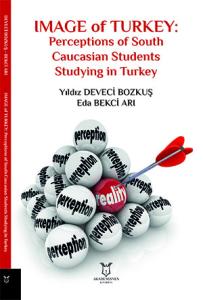Image of Turkey Perceptions of South Caucasian Students Studying in Turkey
Özet
This book examines the perceptions of students from South Caucasus studying in Turkey. With the end of the Cold War, the process of independence began in South Caucasus as well, with fourteen countries in the Soviet region declaring their independence. During this process, three countries including Georgia, Azerbaijan, and Armenia declared their independence. In the post-Cold War period, the South Caucasus region has become a conflict zone between Western countries and Russia. Events in Ukraine, Georgia, Armenia, and Azerbaijan have been the most significant consequences of this conflict. Therefore, developments related to issues such as Crimea, Nagorno-Karabakh, Ossetia, Abkhazia, etc. have shown that the struggle over this region will continue in the future. There are many important connections between Turkey and the Caucasus region, primarily historical, cultural, and political. Relations with the countries in the region are of great importance for the development and sustainability of these connections in the future. The perceptions of students from South Caucasus coming to Turkey are also of great importance for the future of these relations. The aim of this study is to measure the perceptions of university students towards Turkey and how they change before and after coming to Turkey. Supported by the Presidency for Turks Abroad and Related Communities (YTB), this study is also important in terms of providing a perspective on the soft power-based foreign policy that has been particularly prominent in recent years. It is believed that such studies will contribute positively to how Turkey is perceived abroad and that all international students coming to Turkey for education are actually honorary ambassadors. The publication of the results of this study as a book is expected to contribute to the relevant literature and to the overall perception of Turkey by international students.

Yayınlanan
Lisans
LisansBu İnternet Sitesi içeriğinde yer alan tüm eserler (yazı, resim, görüntü, fotoğraf, video, müzik vb.) Akademisyen Kitabevine ait olup, 5846 sayılı Fikir ve Sanat Eserleri Kanunu ve 5237 sayılı Türk Ceca Kanunu kapsamında korunmaktadır. Bu hakları ihlal eden kişiler, 5846 sayılı Fikir ve Sanat eserleri Kanunu ve 5237 sayılı Türk Ceza Kanununda yer alan hukuki ve cezai yaptırımlara tabi olurlar. Yayınevi ilgili yasal yollara başvurma hakkına sahiptir.
